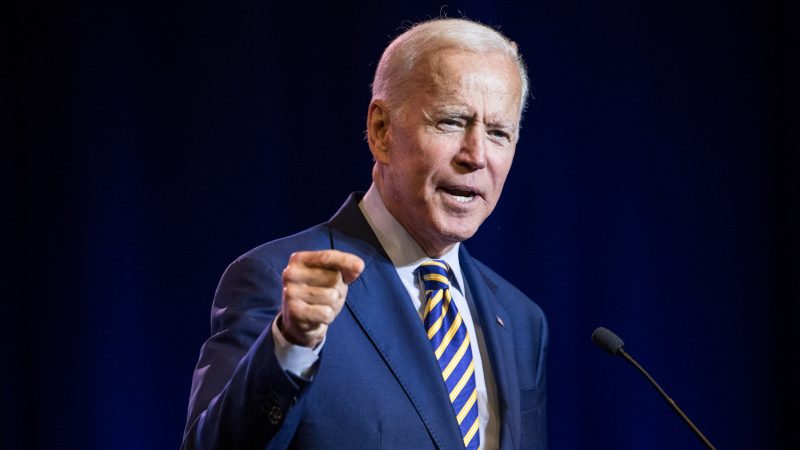
Labour’s 1997 victory was prepared by keen students of US politics. From Gordon Brown to Peter Mandelson to Tony Blair himself, New Labour was marked by its enthusiasm for all things Stateside. Bill Clinton’s 1992 presidential victory was pored over in the search for clues to his success and his “New Democrats” were deliberately aped in “New Labour”. But now President Biden, after winning a decisive victory in November’s Presidential elections, and then overseeing the crucial tip of the Senate towards the Democrats in January, has been offered as a model for Labour, presently stuck in the polling doldrums. Jonathan Freedland thinks he is offering a “masterclass” to the left. But can Labour’s centrists today the right lessons?
The speed and purpose with which the Biden administration has set about its economic agenda is dramatic. The $1.9tn stimulus package, passed in March and carefully skewed towards helping the poorest the most was only the start: his proposed $2tn infrastructure proposals, the “American Jobs Plan”, is pitched as a comprehensive overhaul of America’s creaking infrastructure to create jobs and meet ambitious carbon reduction goals. But more than this, it is tied to plans to push up corporation taxes to 28% – breaking with 40 years of cuts – and, most dramatic of all, to significantly overturn those same four decades of anti-union legislation through the Protecting the Right to Organise Act.
What the Biden administration has set out is a change in the fundamental direction of US economic policy equivalent to Ronald Reagan in the 1980s, or Franklin Roosevelt of the 1930s. It is not – yet – on the scale of either, and there are plenty of questionable compromises that can yet be made with the US’ conservative political institutions – the Senate being the worst amongst them. Already, the corporate tax rises (hugely popular in the US, like in the UK) are being nibbled at, with an important loophole being left open. The $15 minimum wage has been ditched. And Alexandria Ocasio-Cortez has been amongst those on the party’s left insisting, correctly, that more could and should be done. But the line of march is clear – and the proposals are incredibly popular, regularly polling supermajorities and cutting across party lines.
What’s crucial to this is not, as Freedland and others have argued, that Joe Biden, after a decades-long political career dedicated to the pursuit of the absolute dead-centre of Democratic politics, has suddenly thrown off the mask to reveal the radical beneath. Biden did not undertake some heroic one-man long march through the institutions. But nor did this radicalism arrive from a clear blue sky. Biden and his team have sniffed which way the wind was blowing, and moved with it.
That change has been a long time coming. A new US left has emerged in the last decade, inside and outside the Democrats, built around the two Presidential campaigns of Bernie Sanders, stretching in to the growing numbers of self-described socialists and social democrats holding elected office, like Ocasio-Cortez and the newly-elected Cori Bush, and seen in the great shift of public attitudes – particularly amongst the young – against the prerogatives of free markets and the rich.
The same patterns have appeared across the developed world, as the economic failures of the decade or more since 2008 have mounted. But where centrists and the existing centre-left in Europe have self-destructively alternated between contempt, derision and terror when confronted by their own new lefts, the Biden team have deliberately sought an engagement with its representatives. The programme Biden is now pursuing was consciously developed in a dialogue across the Democratic Party, led and organised through the Biden-Sanders Unity Task Force.
Deliberately recruiting from the left of the party – Ocasio-Cortez, for example, sat on the climate change committee – this was, in the wake of a bruising set of primaries, a notable and deliberate attempt to rebuild the Democrats coalition, stretching from younger city dwellers to older, suburban voters who proved decisive in Biden’s eventual victory – and to do so on the basis of a platform for economic change, moving beyond generic values. Bill Clinton would seek out a confrontation with the left; Barack Obama would acknowledge his left, but no more; Joe Biden has moved substantially to bring them on board.
Giving Senator Bernie Sanders – newly seated as chair of the powerful congressional budget committee – significant leeway over the economic programme was a significant step forward. It represented an implicit rejection of the timidity of the Obama years, where the failure to address some fundamentals in the wake of the 2008 crash is widely accepted to have cleared the path for Donald Trump.
The Biden-Sanders economic programme, including a 15-year Green New Deal, tax rises for the rich, and the promise of dramatically increased healthcare spending, fell short of the really transformative demands of the movement, but was a thousand miles from the pinched moderation of Obama or Clinton. Biden didn’t win from the moderate centre, and then shift to the left; he took on important parts of the left programme, and deliberately built the left into his coalition.
It’s this harnessing of the political wind, and the willingness to build a coalition including those well to his left, that has pushed the project along so far. The message ought to be clear: radical economic policies are popular, and Biden shows that self-described, lifelong moderates don’t need to be afraid of them. They can be the glue that hold an otherwise fragile political coalition together. Labour’s own moderates and centrists should once again look to America for guidance. But let’s be clear about the lesson to take.




More from LabourList
Nudification apps facilitate digital sexual assault – and they should be banned
Diane Abbott suspended from Labour after defending racism comments
Labour campaign groups join forces to call for reinstatement of MPs